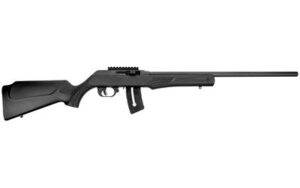things needed for firearm purchase Buying a firearm is a serious decision—and one that requires a clear understanding of your local laws. Whether you’re purchasing for home defense, sport shooting, or hunting, you must meet specific legal requirements that vary by state.
In this guide, we break down the general process and highlight the common requirements across the United States. While the exact details differ by location, this post gives you a strong starting point so you can move forward confidently and legally. things needed for firearm purchase
Federal Requirements: The Baseline Rules
Before diving into state-specific rules, it’s important to understand the federal requirements that apply to every firearm purchase in the U.S.
Under federal law, to purchase a firearm from a licensed dealer (FFL), you must:
-
Be at least 18 years old to buy a rifle or shotgun
-
Be at least 21 years old to buy a handgun
-
Be a U.S. citizen or legal permanent resident
-
Pass a background check conducted by the National Instant Criminal Background Check System (NICS)
You cannot purchase a firearm if you:
-
Have a felony conviction
-
Have been convicted of domestic violence
-
Are subject to a restraining order
-
Are under indictment for a crime punishable by more than one year
-
Have been committed to a mental institution or declared mentally unfit
These rules form the base—states can (and often do) add more regulations on top.
Common State-Level Requirements
1. Firearm Purchase Permits
Some states require you to obtain a permit before you can buy a firearm. States like Illinois, New Jersey, Hawaii, and Massachusetts require a Firearm Owner’s Identification Card (FOID) or similar document before purchase.
To get a permit, you may need to:
-
Complete a background check
-
Provide fingerprints
-
Take a certified safety course
-
Pay an application fee
2. Waiting Periods
Certain states enforce a waiting period between the purchase and delivery of the firearm. This cooling-off period is typically between 3 to 10 days, depending on the state.
States with waiting periods include:
-
California
-
Illinois
-
Washington
-
Florida (for handguns)
Waiting periods do not apply in every state, so be sure to check your local laws before heading to a dealer.
3. Background Checks at All Points of Sale
While federal law requires background checks only for sales through licensed dealers, many states require them for private sales as well.
For example:
-
California and New York mandate background checks for every sale, including gun shows and private transfers.
-
In Texas or Alaska, private sales do not require background checks, unless the seller suspects the buyer is prohibited.
Know your state’s stance before buying from a private seller.
Additional State-Specific Rules
Firearm Types and Restrictions
Many states restrict specific types of firearms or features. Common restrictions include:
-
Magazine capacity limits (usually 10 rounds)
-
Bans on “assault-style” weapons
-
Prohibited features like pistol grips, folding stocks, or threaded barrels
States with stricter regulations include:
-
California
-
Connecticut
-
New York
-
New Jersey
Ammunition and Accessory Limits
Some states even regulate ammunition purchases. You may be required to show ID, submit to a background check, or keep a log of your ammo purchases.
Others may ban specific types of ammo, like armor-piercing rounds or tracer rounds.
Steps to Purchasing a Firearm in Most States
Here’s a general outline you can follow:
-
Know your eligibility – Review federal and state restrictions
-
Check permit requirements – Apply for a FOID or handgun permit if needed
-
Find a licensed dealer – Ensure you’re buying from a trusted FFL
-
Complete a background check – Fill out Form 4473 and pass the NICS process
-
Observe the waiting period – If your state has one
-
Take delivery of your firearm – Once approved and legal
Some states also require you to register the firearm after purchase, especially handguns. Make sure to complete any final steps to stay compliant.
Stay Informed and Stay Legal
Gun laws change frequently. What’s true today may not apply tomorrow. That’s why it’s essential to stay current with your local regulations and make firearm purchases through trusted dealers who follow the law.
Before buying, always check with your state or local law enforcement office, or consult a licensed FFL in your area.
Final Thoughts
Buying a firearm is more than a transaction—it’s a legal process that demands responsibility, awareness, and respect for the law. While it may seem complicated, following the correct steps keeps you protected and informed.
Whether you’re a first-time buyer or an experienced enthusiast, knowing your state’s rules ensures that you stay on the right side of the law from day one.
👉 Ready to buy a firearm or gear up responsibly?
Explore Atlantic Outdoor Guns for trusted firearms, ammo, and accessories backed by expert support.
Shop Now and carry with confidence.




No comment